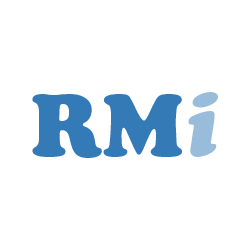March 4, 2022 5:10pm
Intellia’s (NTLA) response to patent news … Rights to CVC’s Intellectual Property
- Intellia has an exclusive license to use CVC’s CRISPR/Cas9 IP estate for the development and commercialization of human therapeutics, with the exception of antibacterial and antifungal applications.
- •Additionally, Intellia has filed numerous patent applications covering its own CRISPR/Cas9 technological innovations, delivery applications and product candidates.
- None of Intellia’s own patent applications are involved or impacted by the interference between the CVC and Broad, which only pertain to a subset of the in-licensed CVC CRISPR/Cas9 IP estate.
Ending a years-long legal battle over who invented CRISPR, the U.S. Patent and Trademark Office ruled on Monday that the revolutionary genome editing technology belongs to the Broad Institute of Harvard and MIT.
The decision is a huge blow to the University of California and biotech companies that had licensed the technology from the university for use in developing treatments. (STAT)
Story continues …From Investor’s Business Daily:
As mentioned, the U.S. Patent and Trademark Office sided with the Broad Institute, saying a team of researchers led by Feng Zhang beat Jennifer Doudna and Emmanuelle Charpentier to the punch on inventing the technology that makes CRISPR gene editing possible. Doudna and Charpentier famously won the Nobel Prize in chemistry in 2020 for their work on CRISPR systems.
A major blow for Intellia Therapeutics (NTLA) and Crispr Therapeutics (CRSP).
- Both are in advanced testing with CRISPR gene editing, but haven't licensed the technology from the Broad Institute. The institute has exclusively licensed its technology to Editas Medicine (EDIT).
Bad Timing for NTLA Stock
- The timing is particularly bad for Intellia. Late Monday, Intellia said its gene-editing treatment cut down on levels of a troublesome protein in patients with hereditary transthyretin amyloidosis. In these patients, the transthyretin protein builds up on the nerves, causing systemic problems.
- Intellia tested four doses across 15 patients. The best response was from patients with the highest dose. Those patients saw an average 93% reduction in transthyretin protein. Protein levels stayed low during the follow-up period, which ranged from two to 12 months.
- Patients who received the lower doses showed average reductions of 52%-87%.
- NTLA and its partner, Regeneron Pharmaceuticals (REGN), plan to finish enrolling patients in two tests this year. They're studying the gene-editing drug in patients with the nerve component of the disease and in patients who have abnormal protein building on their hearts.
"Today's update reinforces Intellia's progress in opening a new era of medicine," Intellia Chief Executive John Leonard said in a written statement. "These data suggest that a one-time systemically delivered CRISPR-based investigational therapy has the potential to substantially reduce levels of a disease-causing protein."
Intellia's NTLA) response (continued)
Recent Ruling by the U.S. Patent and Trademark Office’s (“USPTO”) Patent and Trial Appeal Board (“PTAB”)
• On Feb. 28, 2022, the USPTO’s PTAB issued its decision that Broad scientists were the first to invent the use of CRISPR/Cas9 genome editing in eukaryotic cells.
• This ruling affected 14 patent applications owned by CVC, which are now refused by the USPTO.
Patents Not Included in the Latest Interference Ruling
• CVC has over 45 issued U.S. patents that were not involved in this interference. These patents cover CRISPR/Cas9 genome editing systems in all environments, including eukaryotic cells. More specifically, this includes for human therapeutics.
• CVC also has issued patents to its foundational CRISPR/Cas9 systems in over 30 countries, including in the U.K., European Union, China, Japan, and others, that are not affected by this or any U.S. interference proceeding.
Intellia’s View on the Latest Interference Ruling
• Intellia disagrees with, and is disappointed by the PTAB’s decision.
• Intellia does not expect the PTAB’s ruling to impact its ability to discover, develop, or commercialize future CRISPR-based medicines.
• Intellia continues to focus on developing new CRISPR/Cas9-based therapeutics and generating additional IP protection covering its many gene editing and product innovations.
Ongoing CRISPR IP Dispute Possibilities
• CVC can appeal the PTAB’s decision.
• Anticipated PTAB decisions in separate U.S. interferences between the Broad and two other companies, Toolgen and Sigma-Aldrich, may impact Broad’s granted patents.
• The PTAB, in this case, did not rule on the validity or enforceability of the Broad patents involved in the interference. The Broad’s patents may still be challenged in later proceedings.
• Parties may reach a resolution outside of legal proceedings.
At Intellia, we are confident that CVC will find a path forward and CVC remains in a strong IP position in the U.S. and worldwide. We ultimately believe that a future solution should include the best interest of patients who might benefit from novel CRISPR-based medicines.




